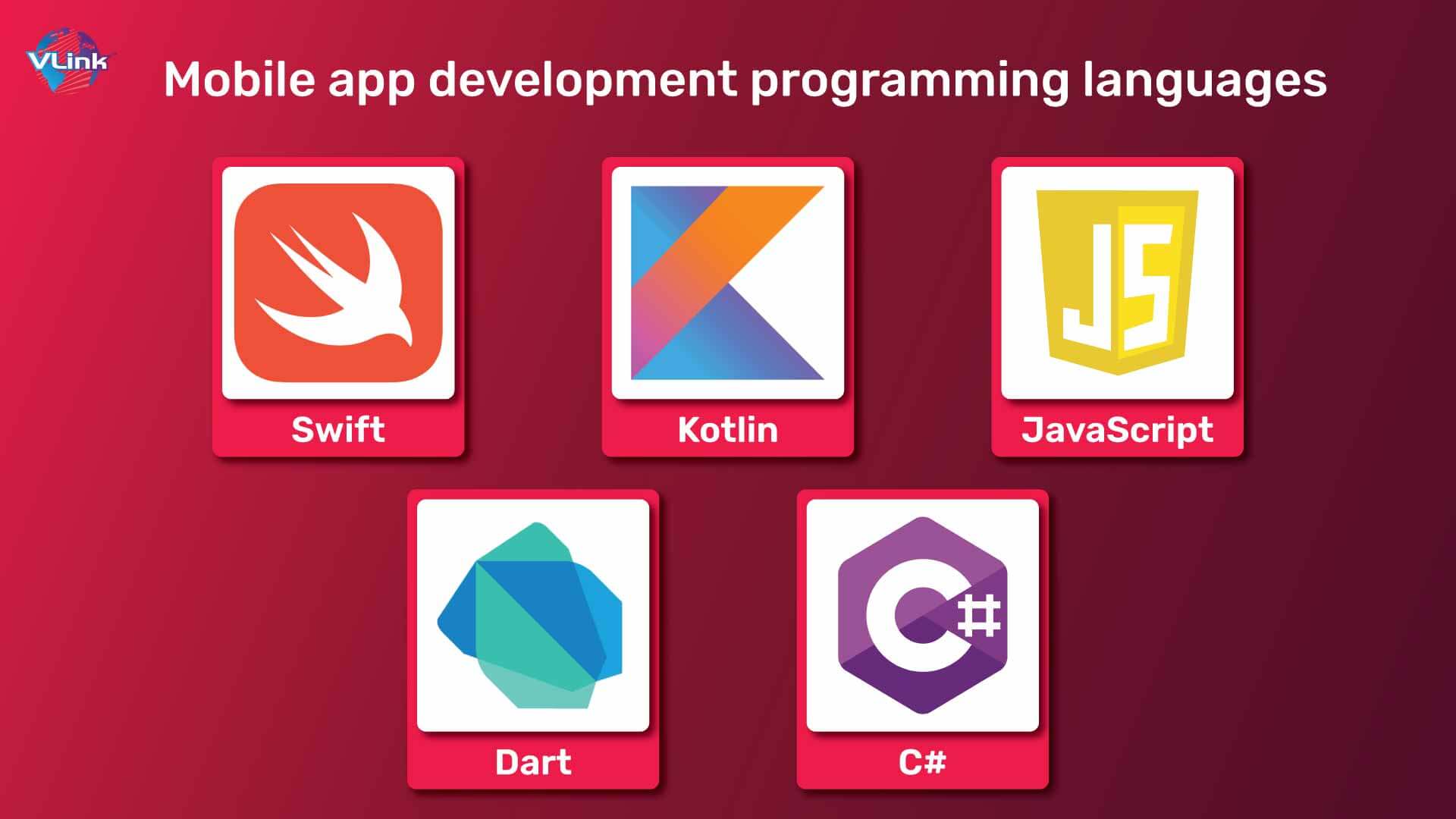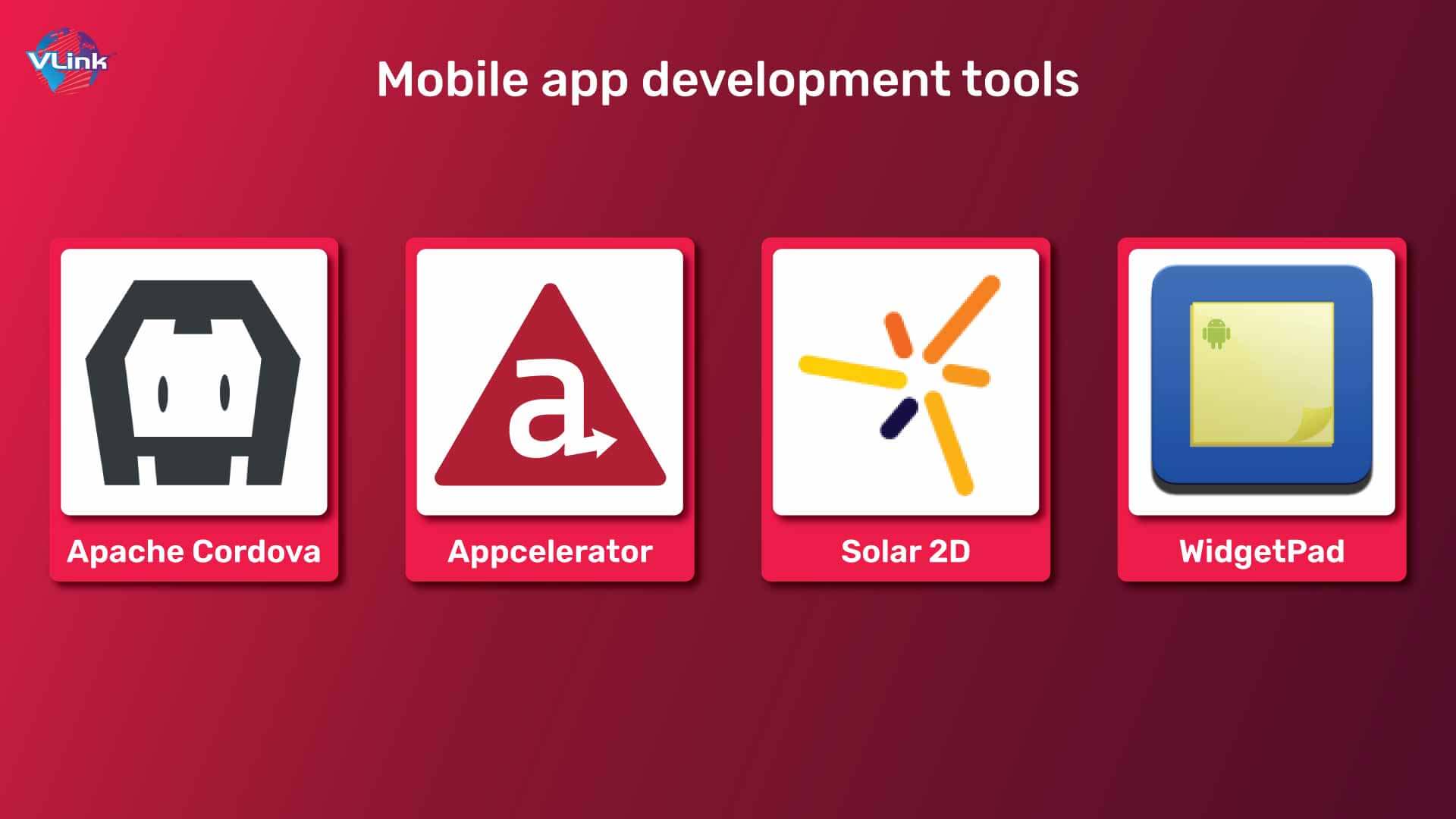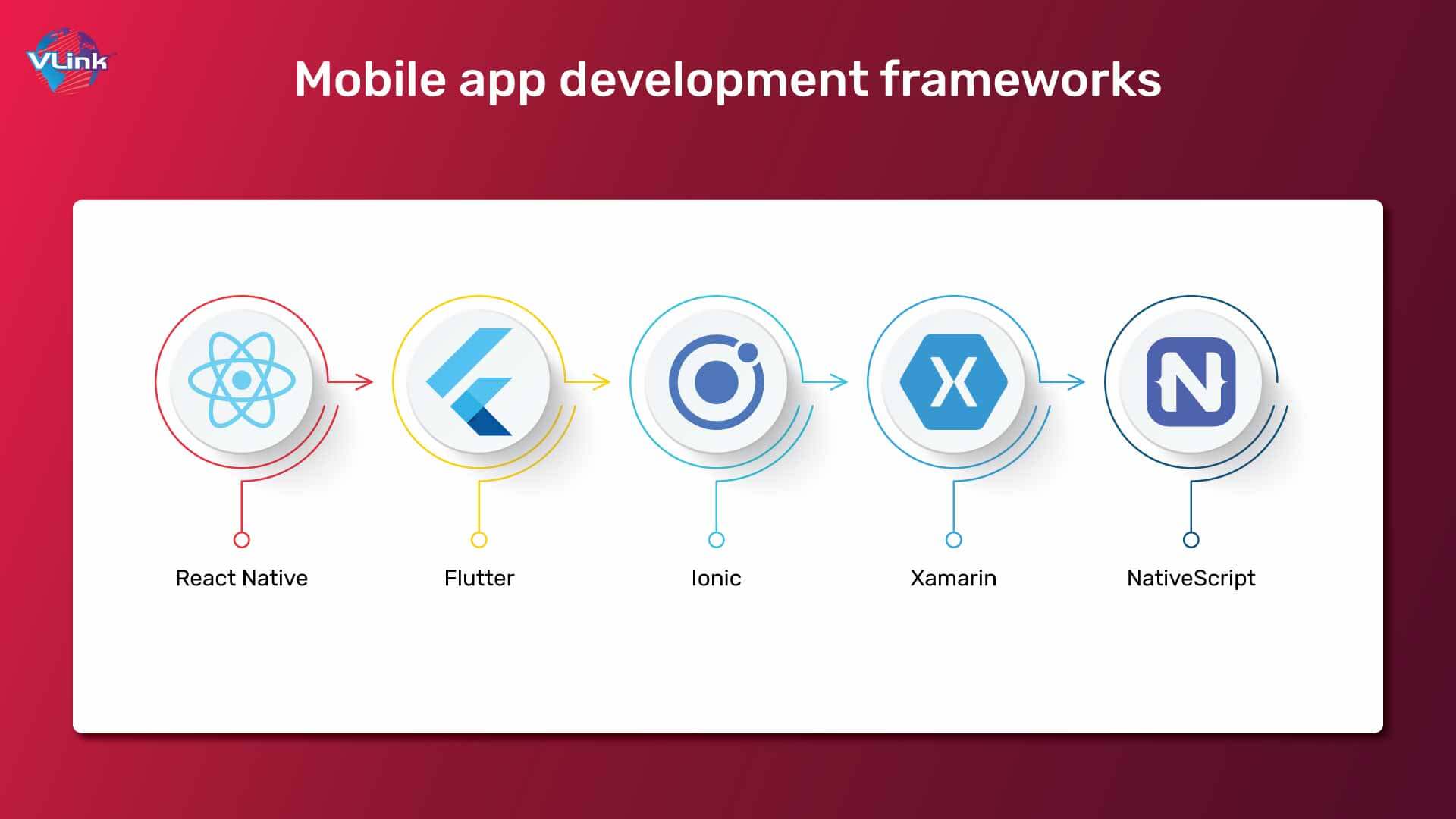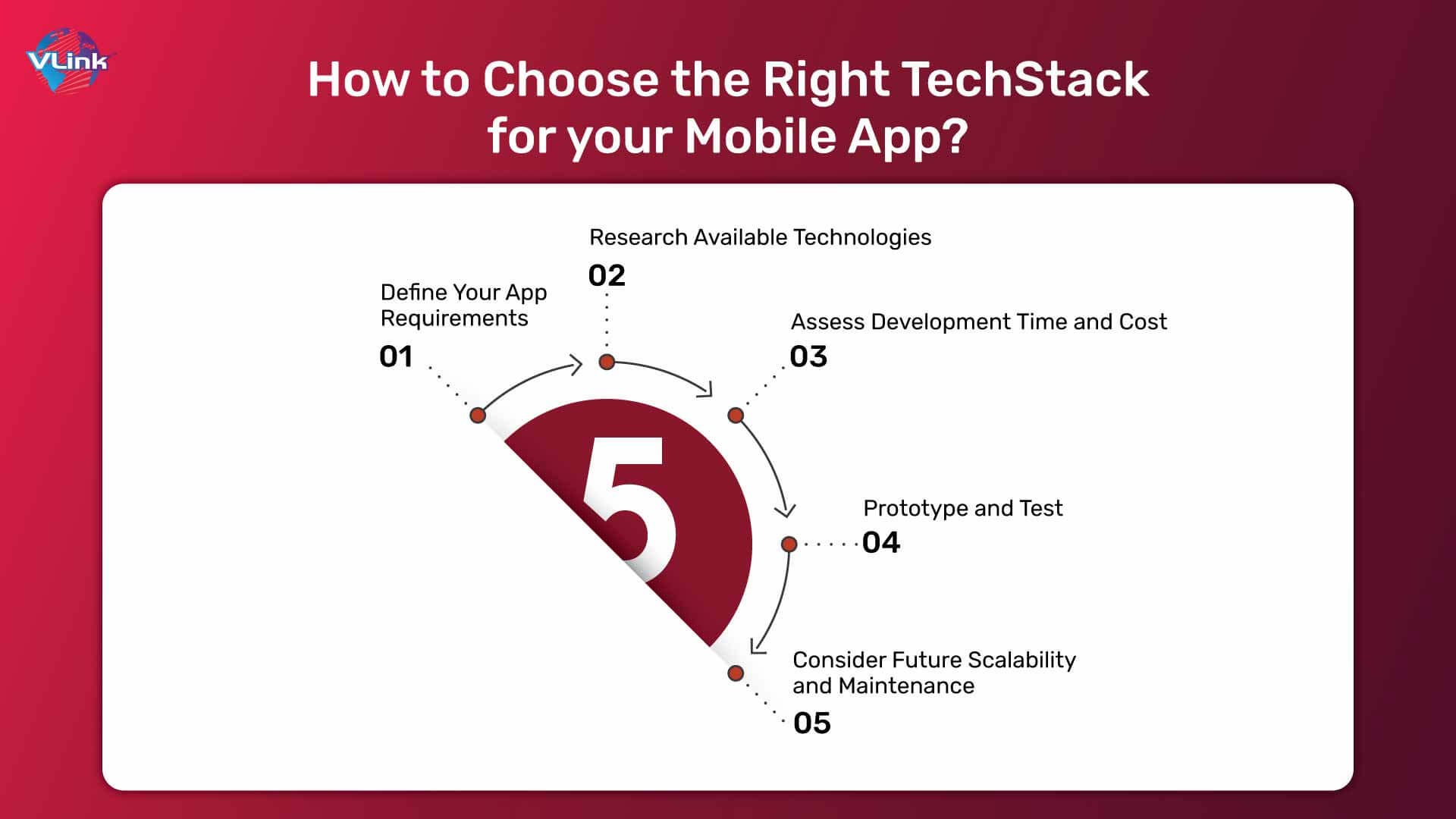The global mobile application market size was valued at USD 228.98 billion in 2023 and is expected to grow at a CAGR of 14.3% from 2024 to 2030
Building applications are frequently seen as a time-consuming procedure. Creating successful business app solutions might have taken months in the past. Planning, design, testing, and deployment steps are detail-oriented and critical, with little tolerance for error. This is because there are multiple phases of app development methods, which are predefined, making the workflow focused on one unique goal.
Cloud computing, AI, Machine Learning, IoT and low-code/no-code are examples of today's application development technologies. Developers may use these technologies to construct robust, unique applications. New technologies enable developers to create apps that match the needs of modern enterprises.
Choosing the best mobile app development technology streamlines the phases of the development process and assists you in reducing expenses, determining timetables, and estimating resources.
This blog will explore the best mobile app development technologies, including languages, tools, and frameworks.
Mobile App Technologies:Categorized in Programming Languages, Tools and Frameworks
#1 - Mobile App Development Programming Languages

Here are latest programming languages for mobile app development for business.
Here is the list of top programming languages used by most companies to build mobile apps:
Swift
Swift is the programming language Apple uses to create iOS, macOS, tvOS, and watchOS programs. It is compatible with the Cocoa and Cocoa Touch platforms and allows you to construct native and web apps.
Swift has a significant benefit in that it requires far less code to achieve equivalent effects. Swift also uses current technologies like generics and closures to make development more accessible and more efficient.
Popular global brands using Swift programming language are Uber, Slack, CRED and more!
Kotlin
Another language on our list of best mobile app development technologies is Kotlin, established in 2011 by JetBrains to replace Java, which was deemed excessively verbose by the firm.
The new language is 40% smaller than its predecessor, which aided in the speeding up of work on JetBrains' primary product, the IntelliJ IDEA development environment. Kotlin can be utilized everywhere Java is used: the backend, the web, the desktop, and various additional jobs.
JavaScript
Being one of the most utilized and popular programming languages, JavaScript is used to build interactive web pages, mobile apps, and even server-side code. It is used in React Native, an open-source, cross-platform framework for generating mobile and desktop apps while discussing the best technologies for mobile app development solutions.
Java contributes to the flexibility, modularity, and extensibility of your app. Java is simple to use, and there are several open-source libraries from which to pick. Hire Java developers to build the most interactive and user-friendly mobile applications, websites, games, and more.
Dart
Dart is a general-purpose programming language that Google created in 2011. It was initially meant for online application development, but everything changed in 2017 with the first release of Flutter.
Developers worldwide utilize Dart to build mobile apps for Android and iOS, web apps, and desktop apps for Windows, macOS, and Linux. The framework which enables access to the Dart programming language is Flutter.
C#
C#, an object-oriented programming language, is the final language on our list of best mobile development technologies. It was created by a group of Microsoft employees between 1998 and 2001 as an application development language for the Microsoft.NET Framework and is utilized in Xamarin.
#2- Mobile App Development Tools

Mobile app development tools integrate development environments (IDEs) with features and functionalities to smooth the development journey. Top mobile app development tools are:
Apache Cordova
Apache Cordova (previously PhoneGap) is a mobile app development framework that allows you to create hybrid mobile apps using conventional web technologies like HTML, CSS, and JavaScript. It enables cross-platform app creation, eliminating the need to develop native apps for each mobile platform and operating system.
APIs that adhere to standards are utilized to gain access to each device's data, sensor, and network status. This framework enables the blending of native and hybrid code snippets, resulting in apps that are neither entirely native nor purely web-based. Cordova also contributes to creating a plugin interface between native and WebView components.
Appcelerator
Appcelerator is a popular open-source, cross-platform development framework that enables businesses to create native apps for Android, iOS, and Windows platforms using a single codebase.
Appcelerator is globally known and one of the most utilized cross-platform app development frameworks. It provides native-like features to build enticing and interactive applications for multiple operating systems without creating a codebase for each (single codebase sharing).
Because the Appcelerator framework is cloud-based, developers may access it from anywhere. It includes various built-in UI components and an Apache-licensed MVC app framework called "Alloy" for separating mobile app user interface, business logic, and data models.
With real-time mobile analytics, an open, extensible development environment, scalable cloud service, API Builder, and API Runtime, this app development solution propels your mobile app to success.
Solar 2D
Corona Labs Inc.'s Solar2D (previously Corona SDK) is a free, open-source cross-platform SDK. Developers can build 2D mobile applications for various devices such as Android TV, Kindle, smartphones, and other connected devices, all with a single code base.
The app development tool also assists in creating desktop programs for Linux, macOS, and Windows platforms. With access to all the crucial plugins and integrations, the Solar2D kit drives flexibility to use in-app advertising APIs, social media sharing, data analytics, and more. Solar2D is built on Lua, a lightweight, quick, and powerful open-source programming language.
WidgetPad
WidgetPad is well-known as a reliable cross-platform, open-source app development tool. It offers a developer-friendly environment to build mobile apps using CSS3, JavaScript, and HTML5 technologies.
The tool provides developers with many capabilities to build sophisticated apps like source code editing, versioning, collaboration, debugging, project management, and distribution.
WidgetPad simplifies the process of developing native apps. With a few clicks, you can add and edit standard widgets like maps, social network feeds, forms, video players, and more.
#3- Mobile App Development Frameworks

React Native
React Native, introduced by Facebook in 2018, is one of the top app development frameworks with the most excellent JavaScript library for developing native applications across all platforms and devices.
Hire React Native developers to create sophisticated apps for both iOS and Android. It also allows for creating platform-specific versions of specific components and using a single codebase across several platforms.
Flutter
Released by Google, Flutter is one of the trending and globally utilized cross-platform software development kits (SDK). It is an open-source framework. Hence, it has a wide selection of Google-backed plugins and enables the development of mobile apps for Android and Apple iOS platforms.
Flutter, a popular mobile app development framework, enables you to create, test, and publish natively compiled attractive mobile apps for every device from a single code base. It employs "Dart" as a programming language rather than JavaScript, allowing for speedy and practical analysis, creating UIs, including highlights, and resolving issues in milliseconds.
Ionic
Ionic allows you to construct cross-platform, interactive hybrid, and progressive online apps. This open-source framework offers high-end web, Android, and iOS mobile app development services.
In addition, you may continually construct and ship apps to deployable locations while working with Ionic. Ionic Studio, the Lightning version of Ionic, is mighty. You may install it locally to have a more accessible visual development environment.
Xamarin
Xamarin, a.NET-based framework, is one of the finest for developing mobile apps. Microsoft is the creator of this native platform. As a cross-platform, open-source app development platform, Xamarin provides a development environment that includes a backend, API, components, etc.
It is backed by a diverse set of utilities, resources, and code languages, allowing you to create native apps for Android, tvOS, watchOS, iOS, macOS, and Windows with the assistance of Xamarin developers and a dynamic community.
NativeScript
NativeScript, initially created by Progress (Telerik by Progress), is one of the most popular open-source frameworks for developing iOS and Android apps today. NativeScript enables developers to create mobile applications in JavaScript or any other language that trans-compiles to JavaScript (for example, TypeScript).
The framework enables developers to reuse third-party libraries from Maven, npm.js, and CocoaPods without wrappers. Its cross-technology compatibility with Angular, TypeScript, and JavaScript encourages component reusability. The framework provides complete and direct access to all iOS and Android APIs.
Why to Choose the Right TechStack for your Mobile App?
Since the advent of smartphones, mobile app development companies have always enhanced their tech stacks to serve the market with the most user-friendly, dynamic applications. Hence, the competition to deliver mobile apps in more productive ways become the top priority for tech companies.
Here are some reasons to choose the right tech stack for your mobile app development:
Enhanced Efficiency
Businesses that stay current on technology decrease physical work, save time, and enhance production. Companies may use technology to automate critical procedures, saving time and making operations more efficient.
Maintain Your Competitiveness
Technology has become an essential component of business. Market competition is tough, and organizations that remain on top of the newest trends capitalize on new possibilities and acquire a competitive advantage.
Increased Security
As cyber threats become more prevalent, organizations must use technology to maintain the security of their systems and data. They must defend their systems against assaults and protect themselves from any hazards.
How to Choose the Right TechStack for Your Mobile App?

Here are five steps to consider when choosing the right mobile app development technologies:
Define Your App Requirements
- Start by defining your app's purpose, target audience, features, and functionality.
- Consider factors like scalability, security, performance, and integration requirements.
- Determine if your app needs to be cross-platform or if it will be native to a specific platform (iOS, Android, or both).
Research Available Technologies
- Research various programming languages, frameworks, and tools suitable for mobile app development.
- Consider factors such as community support, documentation, ease of learning, and available resources.
- Evaluate the pros and cons of different options based on your app requirements.
Assess Development Time and Cost
- Evaluate the time and cost implications of using different technologies.
- Consider development time, maintenance requirements, licensing fees, and hosting costs.
- Balance your budget constraints with the need for scalability and future enhancements.
Prototype and Test
- Develop prototypes using different tech stacks to assess their feasibility and performance.
- Conduct usability testing to gather feedback from potential users and stakeholders.
- Identify any technical challenges or limitations early in development and iterate on your tech stack accordingly.
Consider Future Scalability and Maintenance
- Anticipate future growth and scalability needs for your app.
- Choose technologies that allow for easy scalability, updates, and maintenance.
- Consider the availability of developers with expertise in the chosen tech stack to ensure ongoing support and development.
By following these steps, you can make informed decisions to select the right tech stack for your mobile app, setting the foundation for its success in the long run.
Get The Latest & Appealing Mobile App Development With VLink!
Investing in the proper mobile app development tech stack is an excellent strategy to align your business model to the behaviour of your target audience. Suppose you are a powerful organization with an active mobile app in the market.
In that case, your mobile app growth plan should centre on upgrading your existing product with cutting-edge mobile technology and providing additional value to customers.
VLink has delivered impressive, user-friendly, and business-oriented mobile apps for over a decade. We can help you position your app for success from start to finish. Using the most advanced mobile app development tools and frameworks, we can help you gain a leg up on the competition, decrease expenses, increase brand awareness, and connect your consumers in remarkable ways.
For more information about mobile app development technologies, you can contact us!
Frequently Asked Questions
Java programming language is vast and also easy for basic programming needs. However, the complexity of codebase increases as per the complexity of the project (App or website). On the other hand, Kotlin attains a shorter length of code for developing applications, which is more efficient and better quality. Hence, developers may find Kotlin a better alternative over Java.
The top three among most utilized coding languages for building mobile apps include: Java, Python & C#. However, developers have the advantage of comparing their features and advantages to make a better choice for their mobile app development needs.
5G technology is becoming a dominating mobile app development technology among AI, the Internet of Things (IoT), and cloud computing. Companies are already building integrated 5G smartphones, so that consumers can leverage glitch-less experiences while using mobile apps.







